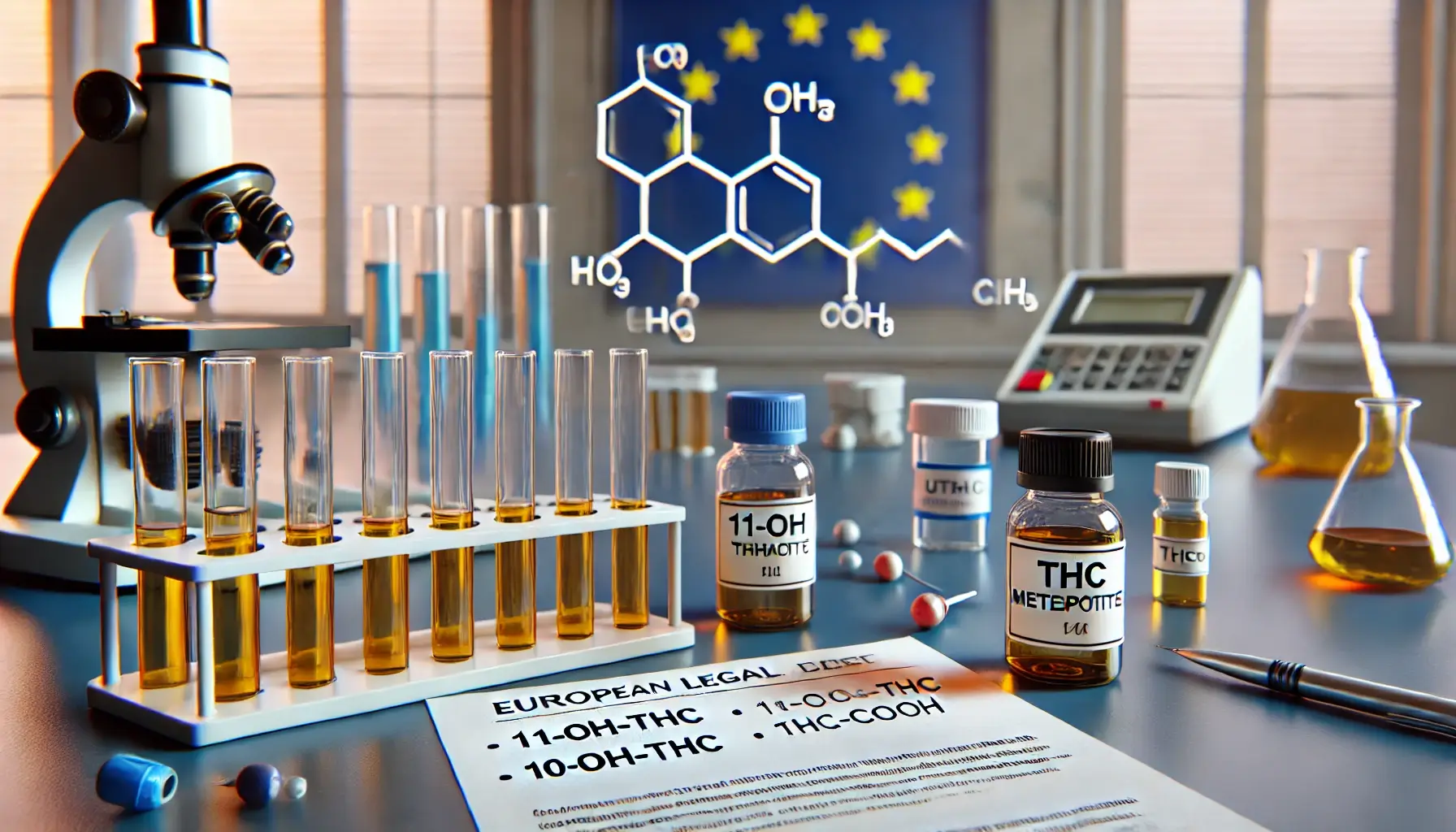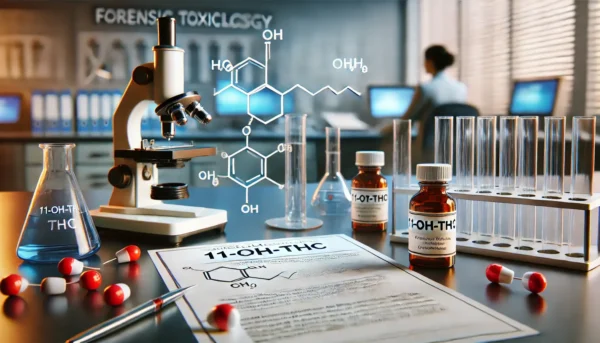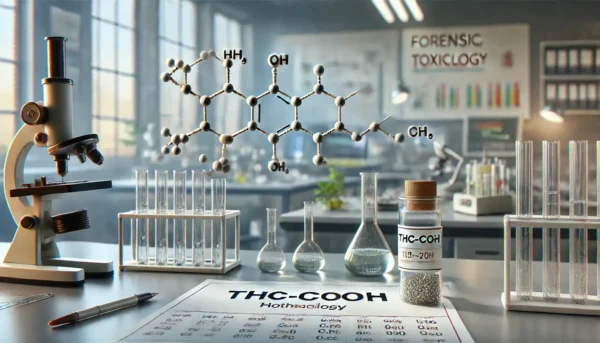Have a question? 06 70 73 89 02
🔞 Not for sale to under 18s
🔥 For a CHILL SUMMER: EVERYTHING is on special 🔥
Have a question? 06 70 73 89 02

With the arrival of the HHC metabolite 10-OH-HHC and its growing notoriety, we decided to take a closer look at THC metabolites. We call them 11-OH-THC, 10-OH-THC and THC-COOH.
Discover our 10-OH-HHC products
In this article, we explain what a metabolite is, what THC metabolites are, what their effects are and their legal status.
The term metabolite refers to metabolic derivatives. These are by-products created by the body when it assimilates a molecule.
Schematically, when you consume THC, HHC or CBD, the molecule enters your body and travels through your bloodstream. It is transported to the liver, which processes it so that it can be more easily eliminated from the body. In the process, the molecule is chemically modified. This is when 10-oh-hhc and 8-oh-hhc are formed for HHC, and 11-OH-THC, 10-OH-THC and THC-COOH for THC.
But cannabinoids aren't the only molecules that give rise to others when processed by the body. This is the case for all active molecules, such as alcohol, which is transformed into acetic acid, aspirin into salicylic acid, and all active molecules found in food (lipids, carbohydrates...), which are transformed into fatty acids, glucose, amino acids...
The three metabolites already mentioned, 11-OH-THC, 10-OH-THC and THC-COOH, are the three main metabolites of THC. 11-OH-THC and 10-OH-THC are quite similar to 8-oh-hhc and 10-oh-hhc in their formation. THC-COOH is very different from the others, as it is created by the oxidation of 11-OH-THC.

11-OH-THC is the first active metabolite formed when THC is metabolized by the liver[1]. It is formed by the addition of a hydroxyl group (-oh) to position 11 of THC's central ring. Its name therefore reflects this modification. 11-OH-THC is the most potent of the metabolites. Studies suggest thatit is up to 4 times more potent than THC[2].
According to the Observatoire de la Prévention, the effects of 11-OH-THC are more powerful when ingested, as it crosses the blood-brain barrier better, leading to more intense and prolonged effects[3].
In fact, studies have revealed a stronger affinity with CB1 receptors, which may contribute to its greater psychoactive potency.
As far as effects are concerned, 11-OH-THC seems to produce very similar effects to THC. With a marked difference in potency. This also means potentially more frequent and severe "bad trips" (paranoia, anxiety attacks...), as well as an increase in heart rate (tachycardia) only minutes after taking the drug. This means that 11-OH-THC is not only more potent than THC, but also faster.
10-OH-THC is also an active metabolite formed when THC is metabolized by the liver, but is much rarer and less studied. As you may have guessed, the difference with 11-OH-THC lies in the addition of a hydroxyl group (-oh) in position 10, rather than position 11 of THC's central ring.
Due to the lack of interest in the molecule, very little is known about the actual effects of 10-OH-THC. It does appear to have a certain affinity for CB1 and CB2 receptors, but much less than THC or 11-OH-THC. Indeed, 10-OH-THC seems to have a much lower psychoactive potency.
Some believe it to be a sedative; however, while this may be possible, these effects have not been documented by scientific research.
The last of the THC by-products we'll discuss is actually a by-product created by the oxidation of 11-oh-THC. As the latter is the most prevalent after THC consumption, the creation of THC-COOH is inevitable, although it is not a direct metabolite of THC. It is the terminal form of THC, in which it is stored pending elimination[4].
To tell you just how inevitable its creation is, and in fairly stable quantities after THC consumption: it's thanks to the detection of THC-COOH that screening tests can deduce THC consumption.
Unlike other metabolites and like CBD, THC-COOH has no affinity with CB1 receptors. It has no psychoactive effects either, but may play a role in the analgesic and anti-inflammatory effects of cannabis.

This is one of the topics of most interest in the CBD market at the moment: which molecule is legal, which is banned, which can be sold. The question of THC metabolites is a complex one.
In France, as in most other European countries, legislation governing molecules does not stop at the molecule itself, but also covers so-called secondary molecules, in other words, synthetic molecules. In fact, Article R.5132-86 of the French Public Health Code states:
"The following are classified as narcotics: substances on the list of narcotics, as well as their esters, ethers, salts, isomers, analogues and metabolites if they are likely to produce identical effects.
Germany's Neue-psychoaktive-Stoffe-Gesetz (NpSG) and Italy's DPR 309/1990 - Testo Unico sulle droghe (Single Text on Drugs), also operate on this "functional analogy" principle: a molecule that is too closely related to a banned molecule in terms of structure AND effects is banned outright.
This directly excludes 11-OH-THC, for its effects which are stronger than those of THC, but leaves a relatively palpable vagueness concerning 10-OH-THC and even more so for THC-COOH. 10-oh-THC lacks research, but it could produce effects weak enough or different enough from those of THC to circumvent the law.
THC-COOH, for its part, has been much more extensively studied, and since it produces no psychoactive effects, it could be perfectly legal. A THC metabolite, whether psychoactive or not, could provide an excellent sales argument. It begs the question: why isn't it sold in CBD shops, when HHC metabolites are currently available for sale? Perhaps it's one of those "red lines" that retailers can't cross for fear of a government response commensurate with their audacity.
Discover our legal CBD derivatives
11-OH-THC, 10-OH-THC and THC-COOH are interesting molecules. Their effects vary: while the former is potentially 4 times more potent than THC, the latter has virtually no effect.
This difference in effect could be felt in European legislation on effective analogy. Which doesn't stop some people from selling 10-OH-HHC.
Indeed, taking advantage of the legal limbo, some - be they trailblazers, intrepid or reckless - or all three - are already offering products containing 10-OH-THC.
It's a safe bet that we'll see the emergence of a new ban aimed at more explicitly regulating the by-products of HHC and THC, in all their forms and whatever their effects.
We'll keep you posted if this happens. In the meantime, thanks for reading and feel free to browse our blog for lots more interesting information about CBD and its world!